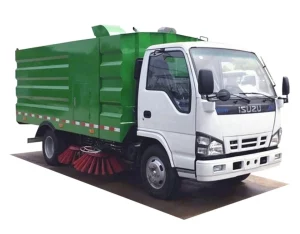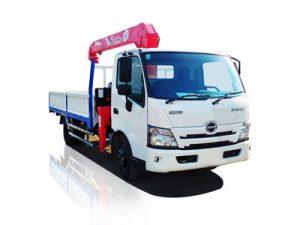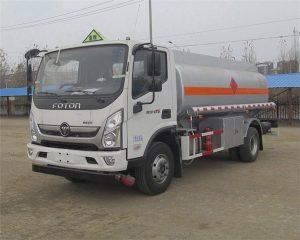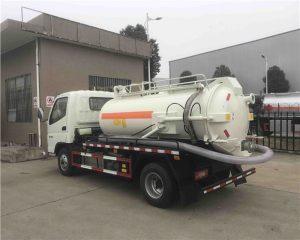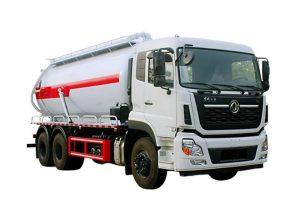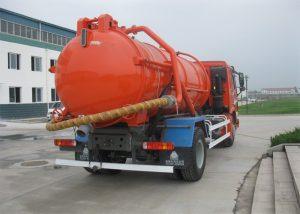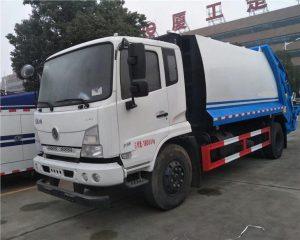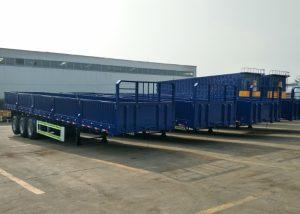Monday to Saturday - 8:00 -17:30
Everything You Need to Know About Front End Loader Trash Trucks
Front end loader trash trucks are essential vehicles in waste management, designed specifically for collecting and transporting refuse. These trucks combine efficiency with powerful design to ensure that urban and rural areas remain clean and functional. In this article, we will explore the features, types, advantages, and maintenance of front end loader trash trucks.
Understanding Front End Loader Trash Trucks
Before diving into the specifics, it’s important to understand what a front end loader trash truck is. These trucks feature a large front loader bucket that can lift and load waste materials into the truck’s body. They are particularly suited for catering to large-volume trash collection needs.
How Do Front End Loader Trash Trucks Work?
Front end loader trash trucks operate by using a hydraulic system to lift the bucket that collects waste. When the truck arrives at a collection point, the bucket is lowered to the ground. The operator fills it with trash, and the hydraulic system lifts the bucket to pour the refuse into the truck’s compartment. This loading method speeds up the collection process significantly.
The Anatomy of a Front End Loader Truck
A front end loader trash truck consists of several critical components:
| Component | Description |
|---|---|
| Loader Bucket | The large front attachment that scoops up trash. |
| Hydraulic System | Controls the lifting and lowering of the loader bucket. |
| Chassis | The structural framework that supports the entire truck. |
| Compartment | The space where collected garbage is stored. |
Types of Front End Loader Trash Trucks
Front end loader trash trucks come in various types to meet diverse waste management needs. Let’s explore the most common types:
Standard Front End Loader Trucks
These trucks are the most common and are designed for general trash collection. They’re capable of handling a wide variety of waste materials.
Heavy-Duty Front End Loader Trucks
Heavy-duty versions of these trucks have enhanced features, including stronger hydraulic systems and larger capacities to handle industrial and construction waste. They are built for rigorous tasks and often come at a higher price point.
Compactor Front End Loader Trucks
These trucks are equipped with a compaction system that compresses waste as it collects. This type is beneficial for maximizing space in the truck, allowing it to carry more refuse before reaching a landfill.
Automated Front End Loader Trucks
Automated versions use robotic technology to operate the loader bucket, reducing the need for human operators. These trucks enhance safety and efficiency in waste management operations.
Advantages of Using Front End Loader Trash Trucks
Several advantages come with using front end loader trash trucks, making them a preferred choice for waste collection:
Efficiency in Waste Collection
The design of front end loader trucks allows for swift loading of trash, leading to quicker collection routes and less time spent at each stop. Their hydraulic lifting mechanism minimizes manual labor and maximizes productivity.
Versatility
Front end loader trucks can be used in a variety of environments, from urban spaces to construction sites. Their ability to handle different types of waste makes them versatile vehicles in any waste management fleet.
Space Optimization
With compaction capabilities, these trucks can hold a substantial amount of waste, reducing the frequency of trips to disposal sites. This optimization can lead to substantial cost savings in fuel and labor over time.
Durability and Reliability
Built to withstand challenging conditions, front end loader trucks are highly durable. Their robust construction ensures longevity, making them a wise investment for waste management companies.
Choosing the Right Front End Loader Trash Truck
Selecting the right front end loader trash truck depends on several factors:
Assessment of Waste Management Needs
Consider the volume and type of waste your operation typically handles. For example, if your focus is on heavy construction debris, a heavy-duty truck might be necessary.
Budget Considerations
Analyze the available budget for purchasing or leasing a front end loader truck. Keep in mind that while upfront costs can be high, the long-term savings from efficiency and durability may offset the initial investment.
Evaluating Features and Specifications
Look into the specifications of different models, such as bucket size, hydraulic power, and compaction features. Ensure the truck you choose matches your operational requirements.
Manufacturer Reputation and Support
Research various manufacturers and their reputations in the market. Selecting a company with solid customer support and service options can be invaluable when maintenance issues arise.
Maintenance Tips for Front End Loader Trash Trucks
Regular Hydraulic System Checks
The hydraulic system is crucial for the functioning of the loader. Make it a routine to check for leaks, low fluid levels, and the general condition of hoses. Regular servicing will help avoid costly repairs.
Tire and Brake Inspections
Inspect tires regularly for proper air pressure and tread wear. Brakes must also be checked for responsiveness. Good tires and brakes are essential for safety and performance.
Routine Engine Maintenance
Follow the manufacturer’s guidelines for engine checks, including fluid changes and filter replacements. A well-maintained engine enhances fuel efficiency and operational reliability.
Body and Chassis Care
Keep the truck’s body clean and free from debris that can corrode or damage its components. Regular washes and inspections will extend the truck’s lifespan.
Real-World Applications of Front End Loader Trash Trucks
Front end loader trash trucks are versatile and used in a variety of settings. Here are a few practical examples:
Municipal Waste Collection
Many cities utilize front end loader trucks for residential waste collection. Their ability to collect large volumes of waste translates into fewer trips and lower costs for municipal waste management programs.
Construction Sites
On construction sites, these trucks handle heavy debris such as concrete and wood waste. Their robust design is ideal for the rugged conditions commonly found in construction zones.
Industrial Facilities
In industrial settings, front end loader trucks are employed for managing scrap materials, production waste, and other refuse. They help maintain operational efficiency by minimizing downtime associated with waste disposal.
Costs Associated with Front End Loader Trash Trucks
The costs associated with acquiring and maintaining front end loader trash trucks can vary widely based on various factors.
Initial Purchase or Leasing Costs
The price of a new front end loader trash truck can range from $150,000 to $300,000, depending on the model, features, and manufacturer. Leasing options may also be available and can lessen the immediate financial burden.
Operating Expenses
Consider costs related to fuel, insurance, and maintenance when budgeting for your front end loader trash truck. Fuel efficiency can vary significantly between models, so it’s a good idea to factor this into long-term financial planning.
Resale Value
Front end loader trucks tend to retain value relatively well, making them a sound investment. Having a robust maintenance record can contribute to a higher resale value later on.
Environmental Considerations in Front End Loader Trash Trucks
As sustainability becomes a priority, the waste management industry is evolving. Here’s how front end loader trash trucks fit into the green movement:
Reduction of Carbon Footprint
Many newer models focus on fuel efficiency, reducing carbon emissions while collecting waste. Operators mindful of eco-friendly practices can select trucks that comply with minimal emission standards.
Recycling Programs
Front end loader trucks can be fitted for specialized tasks, such as collecting recyclables. Implementing recycling initiatives within waste management can further enhance sustainability efforts.
Partnerships with Environmental Agencies
Collaborating with local environmental organizations can improve recycling rates and minimize landfill use, resulting in a more responsible approach to waste management.
Frequently Asked Questions (FAQ)
1. What is the average lifespan of front end loader trash trucks?
The average lifespan of front end loader trash trucks is around 10 to 15 years, depending on maintenance and usage conditions.
2. Can front end loader trash trucks handle hazardous waste?
Some models are designed for handling specific types of hazardous waste, but it’s essential to choose the right equipment and follow local regulations.
3. Are there financing options for purchasing front end loader trash trucks?
Yes, many manufacturers and dealerships offer financing options, including loans and leasing agreements to make purchasing these trucks more affordable.
4. How do I train operators to use front end loader trash trucks?
Operators should undergo specialized training programs that cover both safety procedures and the operation of hydraulic systems. Many manufacturers also offer training resources.
5. What maintenance routine is required for front end loader trash trucks?
A maintenance routine should include regular hydraulic checks, tire inspections, brake assessments, and engine services based on manufacturer recommendations.
6. Are front end loader trash trucks fuel-efficient?
Fuel efficiency can vary between models, but many newer front end loader trucks are designed to be more fuel-efficient, helping to reduce operating costs and minimize environmental impact.


